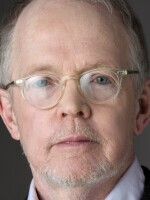AUDIE CORNISH, HOST:
It's ALL THINGS CONSIDERED, from NPR News. I'm Audie Cornish.
MELISSA BLOCK, HOST:
And I'm Melissa Block. It's time now for All Tech Considered, which today takes us to the small farming town of Harrodsburg, Ky. It's the home of something called Willow Glass - glass that's super thin and flexible, and soon to find its way into the high-tech marketplace. It's made by Corning in the same plant that developed Gorilla Glass; that's the stuff Apple uses to make the protective cover for its iPhone. NPR's Noah Adams visited the town, and sent this report.
NOAH ADAMS, BYLINE: Harrodsburg is in central Kentucky - 8,000 people - surrounded by fields with stone fences, cattle, corn, and quite a bit of tobacco ready for harvest.
ZACK ISON: We just finished housing the crop today. We got done at lunchtime today; finally got it all in the barn.
ADAMS: How long have you been farming tobacco?
ISON: My first crop that I raised, I was 15 years old. I'm 30 now.
ADAMS: This is Zack Ison. He always knew he was going to farm, but he understands about his friends from high school who went the other way.
ISON: The reason that a place like Corning comes to this area is to hire guys that have grown up on farms. They know how to work.
ADAMS: There's also now a Wausau Paper plant here, and Hitachi has a big operation. Corning has been in town 60 years. They have 250 hourly union workers and now, 100 engineers in Harrodsburg. Half of them have arrived from outside Kentucky. I talked with two of the veteran engineers: Stephanie Sisk, who's from Georgia; Shawn Marcum, from New York state.
STEPHANIE SISK: One of the things we love to do is, we raise cattle on a 150-acre farm. So when, particularly, our Asian colleagues come over, we like to bring them over for supper because they're so - it's such a different concept for them. (Laughter)
SHAWN MARCUM: When you tell someone where I live and where I work, they're surprised that we have this high-tech manufacturing operation in the bluegrass area that's known for bourbon and horses and farmland.
UNIDENTIFIED WOMAN: Four thirty-five crate change requested.
(BUZZER SOUNDS)
ADAMS: Corning has production in 15 countries, but the folks here in Harrodsburg say they've got the go-to shop. And Gorilla Glass might prove that. Gorilla Glass is already protecting 1 and a half billion personal devices. It started with the iPhone early in 2007.
CASEY DUFFEY: Apple's a sexy operation. It's a great thing to be associated with that customer.
ADAMS: This is Casey Duffey. He's the plant manager at Harrodsburg. The word had come down from headquarters - Corning, N.Y.: Steve Jobs will not have that old, scratched-up, plastic screen on the brand-new Apple iPhone. Steve Jobs wants hard and silky-smooth. He wants glass. This was in January; the iPhone introduction was promised for late June. The iPhone did come out on time with the glass Corning had never made before.
DUFFEY: Now, we didn't have the glass that ultimately we used for Apple, ready. But we had compositions and expertise in this area that led us to believe that we could develop something pretty quickly.
(SOUNDBITE OF MACHINERY)
ADAMS: We put on eye protection and go out into the Corning plant and up to the top floor, to watch sand from West Virginia glowing and melting into glass.
TERRY OTT: Now, you start to get a little bit of a feel for the temperatures that are involved - when you stand closer. At this elevation, we're easily well over a thousand degrees.
ADAMS: Terry Ott is the engineering manager for the plant. He won't talk about what other minerals are added to the mix, except to say they're all on the periodic table.
UNIDENTIFIED WOMAN: Four thirty-seven...
ADAMS: This Corning Glass plant in Kentucky is always running - all day and all night. The big work is done by robots. We watch a full sheet of new glass slide into a vertical work space where it will be scored, and the edges removed.
OTT: And the robot will come up and grab it, and pivot to separate it, and then pass it down the line.
ADAMS: That robot looks like a big, yellow duck.
OTT: (Laughter) Yes. You know, in this case, it's very similar to what - the robots that are classically used in the auto industry and everything else, just adapted for our purpose.
ADAMS: We move on to a different production line, and Terry Ott shows me a large roll of just-finished Willow Glass. It's glass about as thin as a dollar bill. Terry Ott, the top engineer, is uncharacteristically reverential.
OTT: So this is 200 to 100 microns thick; roughly, a meter wide; and basically, spooled as one, continuous ribbon. This is relatively revolutionary for a pristine, untouched glass.
ADAMS: Willow Glass from Corning is soon to be on the market. And an engineer at Harrodsburg might well go home after work these days imagining interactive white boards in every classroom in the world, huge highway and airport signs, antibacterial countertops in hospitals, computer displays you can roll up like a poster. And in Kentucky, you get to think about this sort of thing maybe out on the porch, watching the cows come back across the field at feeding time.
Noah Adams, NPR News. Transcript provided by NPR, Copyright NPR.


